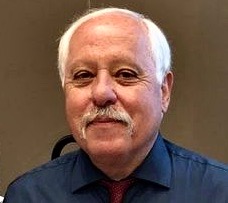 Munich was pretty much as I had envisioned: a fun, vibrant metropolis featuring a lively city center with much to see and do.
Munich was pretty much as I had envisioned: a fun, vibrant metropolis featuring a lively city center with much to see and do.The flight from Portland to Amsterdam was my first transcontinental journey where night never fell, primarily because we flew over Canada, Greenland and Iceland, the "land of midnight sun" during the week of the summer solstice in the Northern Hemisphere.
 The Altstadt, where my hotel -- the Hotel Deutsches Theatre -- was located, is an eclectic neighborhood known as Ludwigvortadt, a half-seedy, half-lively area packed with shops, restaurants, hotels and plenty of tourists.
The Altstadt, where my hotel -- the Hotel Deutsches Theatre -- was located, is an eclectic neighborhood known as Ludwigvortadt, a half-seedy, half-lively area packed with shops, restaurants, hotels and plenty of tourists. Bavaria has traffic signals, of course, just like everywhere else, but with one key distinction. Instead of signaling a stop, the yellow light alerts motorists that it's time to go. In other words, the amber signals a green light instead of a red light.
Bavaria has traffic signals, of course, just like everywhere else, but with one key distinction. Instead of signaling a stop, the yellow light alerts motorists that it's time to go. In other words, the amber signals a green light instead of a red light.This photo metaphor for Munich (left) was apropos: an old stump with a young seedling sprouting from its top in a busy boulevard north of the Kalsplatz in Altstadt.
Venturing to the rural areas on our way to the Alps, it's clear why Germany has such high quality milk and cheese: cows everywhere. Another prevalent feature of rural Deutschland is all the renewable energy projects. One thing is for sure: in the U.S., we're a bunch of renewable energy lightweights when compared to Germany.
The photovoltaic arrays (not to mention wind turbines) are everywhere, even in the mountain country where solar access is perhaps not as good as in the lowlands around Hamburg. They would probably put solar arrays on cows if they could get the bovines to stand still in the sonnenscheine.
 Lions -- like the ones above in the Neues Rathaus in the Altstadt -- are common icons around Bavaria because of Henry the Lion, who founded the city of Munich in 1156.
Lions -- like the ones above in the Neues Rathaus in the Altstadt -- are common icons around Bavaria because of Henry the Lion, who founded the city of Munich in 1156.One of the most powerful German princes of the time at the height of his reign, Henry the Lion presided over the lucrative salt trade in Bavaria, and ruled over a vast territory stretching from the North and Baltic Seas to the Alps.
 As previously noted, the Altstadt includes a plethora of elaborate Roman Catholic churches. The Frauenkirchen choir section also features the final resting place (above) of Ludwig I, King of Bavaria.
As previously noted, the Altstadt includes a plethora of elaborate Roman Catholic churches. The Frauenkirchen choir section also features the final resting place (above) of Ludwig I, King of Bavaria.Like the the tagline on the bag for the shirt that I purchased at Abendzeitung, the Hotel Deutsches Theater provided "mehr Munchen, mehr service and alles drin" (more Munich, more service, all included). And much like I found in Genoa, the people of Munich have a joie de vivre that is contagious.


No comments:
Post a Comment